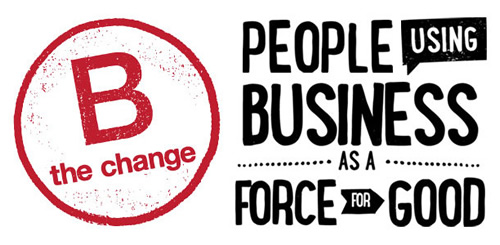 We talk about AMS Fulfillment being unique and on the forefront as a B Corporation, but what is a B Corp? What do B Corps do that might be different from other corporations? To answer these questions in general terms, here below is some information from ‘Be the Change’ about Benefit Corporations.
We talk about AMS Fulfillment being unique and on the forefront as a B Corporation, but what is a B Corp? What do B Corps do that might be different from other corporations? To answer these questions in general terms, here below is some information from ‘Be the Change’ about Benefit Corporations.
- Certified B Corporations, B Corps for short, are for-profit companies dedicated to using business as a force for good.
- B Corps meet the highest verified standards of social and environmental performance, transparency, and accountability to all of their stakeholders.
- B Corps use the power of business to solve our most pressing global challenges.
- Unlike traditional corporations, B Corps are legally required to consider the impact of their decisions on all stakeholders: customers, workers, communities, and the environment.
This is how B Corps get certified:
- B Corp Certification is based on three essential pillars. Alone, none of these pillars are sufficient. It’s the combination that makes it unique, credible, and significant.
- Verified performance ensures that B Corps walk the talk. To meet the performance requirement, a company must earn a minimum, verified score of 80 points on the B Impact Assessment, which examines a company’s overall impact on its workers, community, customers, and environment.
- Transparency builds trust. Once certified, each B Corp must make its B Impact Report transparent on bcorporation.net, allowing the public to see the areas in which specific companies excel and compare B Corps’ scores against the performance of mainstream businesses.
- By meeting the legal requirement for certification B Corps are better able to maintain mission as they scale, have more flexibility when evaluating future sale options, and are better prepared to lead a mission-driven life post-IPO.
Some B Corps put a strong focus on environmental impact.
- B Corps outperform ordinary businesses by 15% on natural-resources conservation.
- B Corps are 87% more likely to monitor, record, and set scope 1 and 2 greenhouse gas emissions reduction targets compared with ordinary businesses.
- B Corps are 70% more likely to reduce the volume or toxicity of waste generated through material selection, production process, or product design than ordinary businesses.
- B Corps are 2.8x more likely to use 100% low-impact renewable energy than ordinary businesses.
While AMS does stand alongside others regarding the environment, we have an equally strong focus on the workforce.
- B Corps are 9% more diverse than ordinary businesses.
- B Corps are 33% more likely to have gender-inclusion trainings than ordinary businesses.
- B Cops are 45% more likely to have Diversity and Inclusion training concerning people of color than ordinary businesses.
- B Corps are 48% more likely to have LGBTQ-inclusion trainings than ordinary businesses.
- B Corps are 27% more likely to pay 100% of their hourly workers a living wage in comparison to ordinary businesses.
- B Corps are 43% more likely to pay the majority of employee health insurance than ordinary businesses.
- B Corps are 20% more likely to have flex-time work schedules than ordinary businesses.
- 75% of US B Corps have incorporated some form of health care benefits that lessen the cost for their employees.
AMS does even more with regard to workforce development, diversity and inclusion.
- AMS has a classroom on campus where college-level classes are offered to the employees and community and most are free.
- AMS joined with a local college to develop the first in California Logistics Apprenticeship, and 17 individuals have now graduated the program. AMS also has a pre-apprentice program to prepare employees for apprenticeship training.
- AMS works with community organizations and the City of Santa Clarita to train and hire individuals with disabilities.
- AMS works with community organizations and the State of California to hire individuals who have been justice involved or incarcerated.
- AMS works to assist the homeless and others who have serious obstacles to obtaining employment.
For clients, employees and community, we’re proud to benefit the world as a B Corporation.




